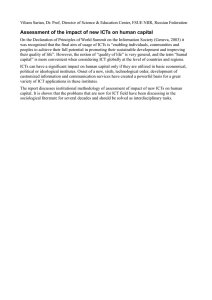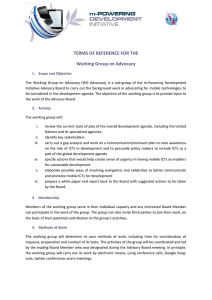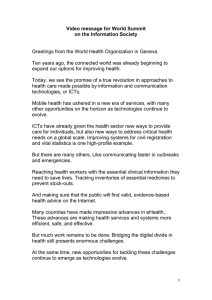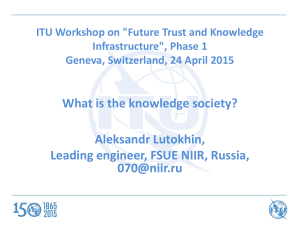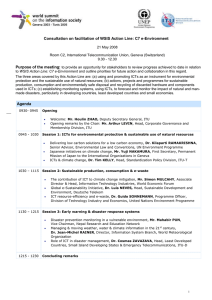Draft WSIS+10 Vision Beyond 2015
advertisement
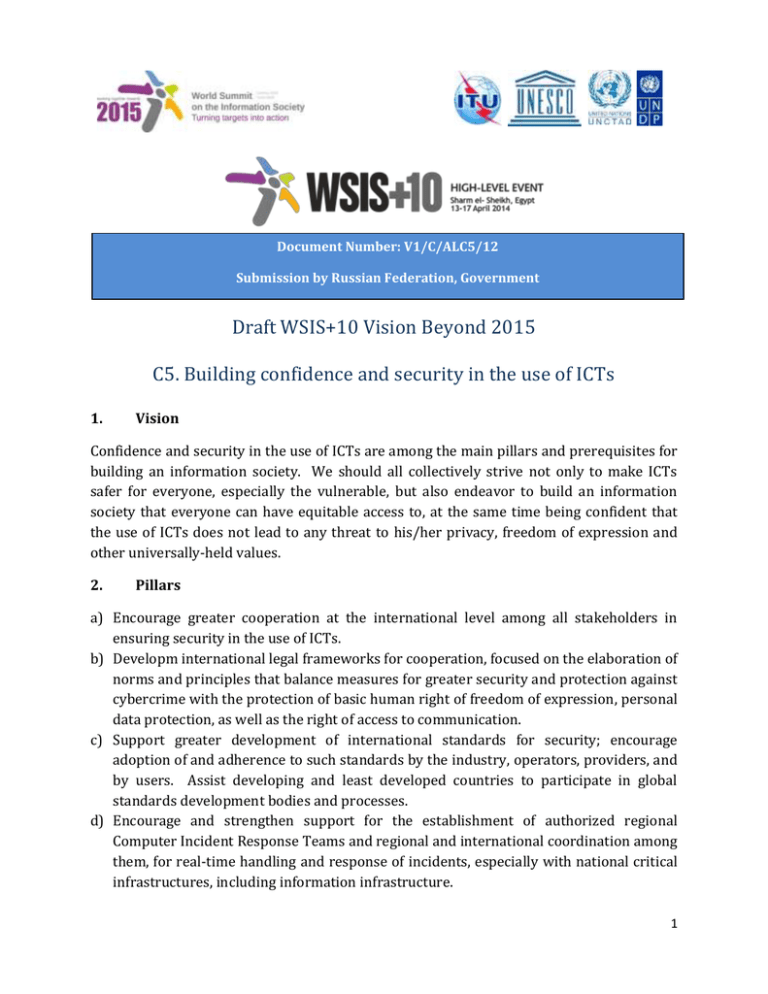
Document Number: V1/C/ALC5/12 Submission by Russian Federation, Government Draft WSIS+10 Vision Beyond 2015 С5. Building confidence and security in the use of ICTs 1. Vision Confidence and security in the use of ICTs are among the main pillars and prerequisites for building an information society. We should all collectively strive not only to make ICTs safer for everyone, especially the vulnerable, but also endeavor to build an information society that everyone can have equitable access to, at the same time being confident that the use of ICTs does not lead to any threat to his/her privacy, freedom of expression and other universally-held values. 2. Pillars a) Encourage greater cooperation at the international level among all stakeholders in ensuring security in the use of ICTs. b) Developm international legal frameworks for cooperation, focused on the elaboration of norms and principles that balance measures for greater security and protection against cybercrime with the protection of basic human right of freedom of expression, personal data protection, as well as the right of access to communication. c) Support greater development of international standards for security; encourage adoption of and adherence to such standards by the industry, operators, providers, and by users. Assist developing and least developed countries to participate in global standards development bodies and processes. d) Encourage and strengthen support for the establishment of authorized regional Computer Incident Response Teams and regional and international coordination among them, for real-time handling and response of incidents, especially with national critical infrastructures, including information infrastructure. 1 e) Continue to encourage the building of a “culture of security in the use of ICTs” at the national, regional and international levels through awareness raising and training, especially for the general public - providing assistance to developing and least developed countries in this regard. f) Promote, through international frameworks if needed, respect for the right to privacy, data and consumer protection, including for applications and services hosted on cloudbased platforms. g) Ensure special emphasis for protection of the vulnerable, especially children, online; In this regard, governments and other stakeholders, especially civil society, should implement joint programs aiming to help enjoy the benefits of ICTs in a safe and secure environment. h) Promote effective cooperation among the governments and with other stakeholders to build transborder space of confidence and security for development i) Recognize the need for collaborative development and implementation of international standards, rules and measures to strengthen confidence and security in the information environment, to ensure ICT protection, integrity, sustainability and viability, inter alia, through adaptation of the existing international law in the field of ICTs. j) Promote the development of assessment criteria for the confidence and security in the use of ICTs. Conduct monitoring in this field. 3. Targets a) Overall readiness in the field of confidence and security in the use of ICTs in all countries should be improved by 40% by 2020 – with specific focus on developing countries, including least developed countries, small island developing states, landlocked developing countries and countries with economies in transition. The assessment of readiness in the field of confidence and security in the use of ICTs should take into account the current level of penetration of ICTs. b) Building transborder space of confidence and security in the Internet at the international and regional levels by 2020. c) Ensuring maximum level of child on-line protection by 2020. 2
